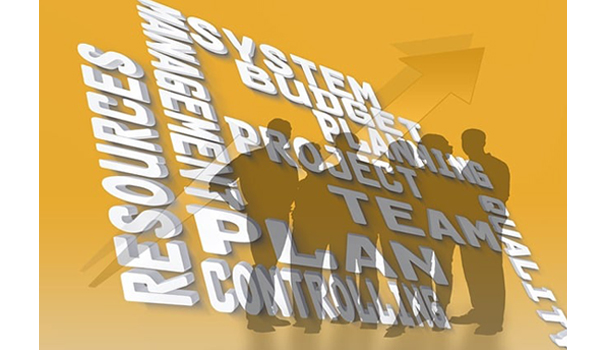
ERP Software
Explore ERP Software category & post requirement to connect with ERP Software provider for your business and get the best quotes from multiple ERP Software provider.
Enterprise Resource Planning (ERP) Software
Enterprise Resource Planning (ERP) Software is a comprehensive business management tool designed to integrate and streamline core processes within an organization. It consolidates data from various business functions - such as manufacturing, sales, accounting, human resources, and more—into a unified system, allowing for efficient tracking, management, and interpretation of data across departments. By maintaining a centralized database, ERP systems provide a real-time view of key business activities, from resource allocation and inventory tracking to payroll and order management. This interconnected approach optimizes workflows and enhances decision-making, making ERP software invaluable for organizations aiming to improve efficiency and agility.
Key Benefits of ERP Software
Adopting ERP software brings a range of benefits that enhance operational efficiency, visibility, and strategic planning. Below are some of the primary advantages:
1. Reduced IT Costs
- Consolidation of Systems: ERP software integrates multiple business functions (e.g., CRM, accounting, HR, inventory, and supply chain) into a single platform, eliminating the need for multiple standalone applications.
- Cost Savings: By centralizing resources, organizations can reduce expenses related to staffing, infrastructure, support, and licensing.
- Simplified Training: With only one system to learn, end users require less training time compared to managing multiple applications.
2. Complete Visibility
- Centralized Information: ERP provides a single source of truth for all departments, allowing real-time access to data and promoting transparency.
- Efficient Process Tracking: By consolidating data, ERP software allows users to monitor and manage departmental processes with ease, leading to improved collaboration and streamlined workflows.
- Enhanced Collaboration: Teams can access and share data quickly, which promotes better communication and a more coordinated approach to project completion.
3. Improved Reporting and Planning
- Unified Reporting System: Generate comprehensive reports across all departments, offering insights for data-driven decision-making.
- Automated Analytics: ERP systems can automatically create custom reports, including financial statements, cash flow analysis, and operational metrics, eliminating manual data compilation.
- Business Intelligence (BI): Advanced ERP solutions offer BI tools for deeper analytical insights, identifying strengths and areas for improvement, and enabling strategic planning.
4. Enhanced Efficiency
- Automation of Repetitive Tasks: ERP systems can reduce or eliminate manual tasks, freeing up employee time for more valuable activities.
- AI and RPA Integration: With embedded artificial intelligence (AI) and robotic process automation (RPA), ERP software can assist in tasks like demand forecasting, order generation, and inventory tracking.
- Improved Workflow: Automation leads to faster and more accurate processing, reducing the risk of human error and increasing productivity.
5. Improved Customer Service
- Centralized Customer Data: ERP software consolidates customer data, making it easy for sales and service teams to access relevant information and provide personalized support.
- Enhanced Order Processing: End-to-end tracking of customer orders improves accuracy, reducing processing times and enhancing customer satisfaction.
- E-Commerce Integration: ERP systems often support e-commerce, enabling businesses to manage online orders and customer interactions seamlessly.
6. Data Security
- Robust Security Measures: ERP software typically includes advanced security protocols, maintaining a secure environment for sensitive data.
- Centralized Data Backup: With ERP, organizations can manage backups for critical information, whether on-premises or cloud-based, ensuring data is protected and easily recoverable.
- Access Control: ERP systems allow for role-based access control, ensuring only authorized personnel can view or edit specific information.
Why Implement ERP Software in Your Organization?
ERP software is ideal for businesses seeking a unified approach to managing resources, data, and workflows. The centralization and automation provided by ERP enhance both day-to-day operations and long-term planning. Here are additional reasons why ERP is beneficial:
- Increased Visibility and Transparency: With a unified data platform, businesses gain insight into each functional area, improving accountability and reducing bottlenecks.
- Optimized Resource Allocation: ERP enables precise tracking of inventory, production capacity, and human resources, allowing for efficient allocation and minimized waste.
- Scalability: ERP software supports business growth, as organizations can scale operations without needing to overhaul existing systems.
- Streamlined Compliance and Reporting: ERP systems facilitate compliance with industry regulations, as data is organized and easily retrievable for audits and reporting.
- Enhanced Strategic Planning: By providing analytics and insights, ERP software supports informed decision-making, ensuring resources align with organizational goals.
Enterprise Resource Planning (ERP) Software is a powerful tool for organizations looking to integrate and optimize core processes. From managing resources and tracking orders to enhancing customer service and ensuring data security, ERP provides a comprehensive solution to drive operational efficiency and profitability. Implementing an ERP system allows companies to centralize information, streamline workflows, and make data-driven decisions that promote business growth and sustainability.



